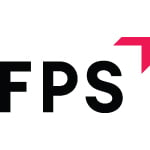
General counsel and head of compliance | Hottinger Brüel & Kjaer



Nina Rosen
General counsel and head of compliance | Hottinger Brüel & Kjaer
How do you approach managing legal aspects during periods of instability or crises, and how does your legal strategy align with the broader business strategy to ensure the organisation’s resilience?
The department is represented in the leadership team, ensuring that relevant information flows freely to assess (legal) risks and opportunities. Doing business right is a cornerstone of our business strategy and as such, the function supports a variety of strategic initiatives. In our global matrix organisation, the interaction occurs on multiple levels, with close collaboration across business units and functions to support each other, while keeping a close eye on new or upcoming legislation. The teams are available for everyone across the entire company and very approachable for all questions or concerns, creating a culture of engagement. This is key to navigate a future risk landscape as there is evidence that businesses promoting ethical leadership have higher retention rates and better results.
What are the main cases or transactions that you have been involved in recently?
Our acquisition of Piezocryst Advanced Sensorics GmbH from AVL (plan to be closed in 2024): Acquisition of Piezocryst, Leading Provider of Piezoelectric Sensors – HBK was the most recent transaction of me and my team.
How have you integrated technology into your legal processes, and what impact has this had on efficiency and compliance?
We closely align with our Digital team on use of AI within the company, and our Legal team is very eager experimenting with the opportunities. The enthusiasm for AI based legal technology is very high and while we have adopted Workflows and PowerBI tools in our day-to-day work, also digital signature tools to facilitate approval workflows and automation of standard work for our internal customers, we have not yet found the efficiency impact to be as high as we would like it to be. The risk of hallucinations is still too great to be ignored and so far, the step of a manual review of many documents is still deemed necessary.
Furthermore, the implications of the EU AI Act for both internal and external use cases, i.e. chatbots to explain policies and procedures internally, or as an additional external customer interface, are in regular alignment to balance the efficiency opportunity, the investment and the legal obligations we would need to observe post adoption.
What do you see as the major legal challenges for businesses in Germany over the next five years, and how are you preparing to address them?
One of the main challenges we will have to deal with will be the retirement of so many employees who are part of the boomer generation. Almost 20 million employees will retire until 2036, which means that we will have to deal with a reduced workforce while having to deal with a large increase in retirees who participate in the pension scheme. Unless we manage to increase automation and the use of digital tools and artificial intelligence in our daily lives, and increase skilled immigration, we will face tremendous challenges.
So, the balance of labour law regulation and immigration laws on the one hand and privacy and digital information security regulations will become a larger challenge than we may anticipate today. I believe we will be able to manage integrated supply chains and even monitor large assets to protect them better in (more frequent) natural disasters, and the increase in digital tools in Finance will help curb bribery and money laundry concerns and facilitate compliance – but information security will be continuously a top priority. Not only in Germany, but globally.
General counsel and head of compliance | Hottinger Brüel & Kjaer